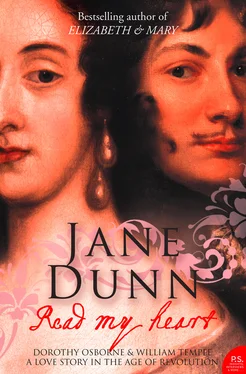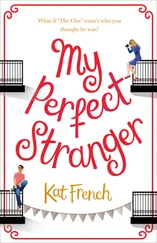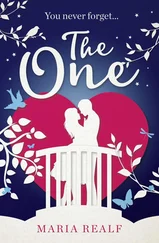1 ...8 9 10 12 13 14 ...32 However, all these social graces were only the gloss on a seventeenth-century gentlewoman’s education, for at the heart of her moral and intellectual schooling was religion. This and a due respect for the authority of her parents was the structure by which she was expected to live her life. The mother of Margaret Lucas, who later as the Duchess of Newcastle † became notorious for her lack of self-effacement, laid on tutors for her daughter in all the basic ladylike skills, but Margaret reckoned they were more for ‘formality than benefit’ and consequently ‘we were not kept strictly thereto, for my mother cared not so much for our dancing and fiddling, singing and prating of several languages, as that we should be bred virtuously, modestly, civilly, honourably, and on honest principles’. 15
Another daughter of a royalist family, Lady Halkett, recalled the emphasis put on her religious education under the eye of an intellectual mother. Each day began and ended with prayer and devotional reading, usually of the Bible, and the local church was a regular meeting-place for worship and for instruction: ‘for many yeares together I was seldome or never absent from devine service att five a clocke in the morning in the summer and sixe a clock in winter.’ 16 This routine continued until the Puritan ascendancy during the commonwealth discouraged displays of public worship.
Religion played more a pragmatic than a spiritual role in the average young woman’s life by setting and enforcing the boundaries of acceptable behaviour. It provided the moral framework to an individual life and the badge of identity for the extended family. As Sir George Savile * explained to his daughter, her education very much in mind: ‘Religion is exalted reason, refined and sifted from the grosser parts of it … it is both the foundation and the crown of all virtues … It cleanseth the understanding, and brusheth off the earth that hangeth about our souls.’ 17 He also thought it better if young women remained loyal to the religion they were brought up in as it was ill-advised for a girl to trouble her head with religious debate, ‘in respect that the voluminous inquiries into the truth, by reading, are less expected from [your sex]’. 18
Dorothy was brought up to be the ideal daughter with an unquestioning belief in God and acceptance of His will and, by extension, the authority and dictates of her family. Growing up just before the cataclysmic upheavals of the civil wars, she was the youngest child in a comfortably off patriarchal family. There was a well-ordered pattern to life and a narrow range of choices for her future. The quality and horizons of her adult life depended on two things above all else: the nature, status and financial means of the man she would marry; and her health, for few women escaped their destiny of multiple childbirth and untreatable diseases that could only be left to run their course.
The influential religious writer Jeremy Taylor, * whom Dorothy considered her spiritual mentor, offered his tolerant and practical interpretation of the scriptures by which a young woman like her could choose to live a worthwhile and pious life: ‘Let the women of noble birth and great fortunes … nurse their children, look to the affairs of the house, visit poor cottages, and relieve their necessities, be courteous to the neighbourhood, learn in silence of their husbands or spiritual guides, read good books, pray often and speak little, and “learn to do good works for necessary uses”, for by that phrase St. Paul expresses the obligation of Christian women to good housewifery and charitable provisions for their family and neighbourhood.’ 19
Chicksands Priory housed not only the Osborne family but also their servants with whom they lived closely. The real wealth of the estate consisted in about 800 acres of arable land, a similar amount of pasture providing grazing for sheep and cattle. There was a similar acreage again of woodland, with all the essential resources that provided building and fencing materials, firewood, cover for game and protection from the wind and the worst of the weather. On top of this was a further acreage of uncultivated heathland. Chicksands estate also housed its tenant farmers and estate workers in some forty different houses. There were two water mills to grind the corn they harvested. Vegetables and fruit, meat, milk, flour, all would have been produced for the substantial community who relied on the Osborne family and their land for their livelihoods.
Before the civil wars and the depredations on his fortunes, together with the swingeing fines that followed, Sir Peter Osborne’s annual income was £4,000 a year, the equivalent today of just under half a million. Life was lived in the raw, the poor and sick alongside the well-off and hearty, the yeoman workers and tradesmen amid the leisured classes of gentry and aristocracy. On a country estate everything was on an intimate scale, the people living close to the earth and its seasons: deer were hunted, wild animals trapped and domestic beasts slaughtered and butchered on site; the mentally ill or retarded were absorbed in the family and the larger community; babies were born in equal travail and danger, be it in the big house or the hovel; people suffered and died at home while all around them life went on.
The Duchess of Newcastle, a contemporary of Dorothy’s, remembered being a sensitive child who shrank from the extremes of life and death that assailed her sensibilities on her parents’ estate in Essex. She refused to join the other ladies of quality who crowded round a hunted deer as it was killed ‘that they might wash their hands in the blood, supposing it will make them white’ and, unusually for her time, honoured the life in all creatures: ‘it troubles my conscience to kill a fly, and the groans of a dying beast strike my soul.’ 20
Dorothy Osborne owned up to a similar liveliness of imagination and fellow feeling: ‘Nothing is soe great a Violence to mee, as that which moves my compasson[.] I can resist with Ease any sort of People but beggers. If this bee a fault in mee, tis at least a well natured one, and therefore I hope you will forgive it mee.’ 21 Growing up at Chicksands, Dorothy’s days had a rhythm and regularity dictated by the seasons and interrupted only by the visits of family and friends. Journeys were difficult and lengthy and young unmarried women could not undertake them on their own, so Dorothy usually had to wait until an obliging member of her large extended family could accompany her. In one of her later letters to William, Dorothy described in detail the pattern of her daily life. She happened to choose a June day in 1653 when she was twenty-six but, as she made clear, the pattern of rural life remained essentially unaltered through the years: it is reasonable to believe it was a sketch of many summer days at Chicksands when she was still a girl. It is this famous passage that Virginia Woolf recalled when she gazed on that country wedding in 1928.
You ask mee how I passe my time heer, I can give you a perfect accounte not only of what I doe for the present, but what I am likely to do this seven yeare if I only stay heer soe long. I rise in the morning reasonably Early, and before I am redy I goe rounde the house til I am weary of that, and then into the garden till it grows to[o] hott for mee. About ten a clock I think of making mee redy, and when that’s don I goe into my fathers Chamber, from thence to dinner, where my cousin [Henry] Molle and I sitt in great State, in a Roome & at a table that would hold a great many more. After dinner wee sit and talk till Mr B [Levinus Bennet, Sheriff of Cambridgeshire] com’s in question and then I am gon. The heat of the day is spent in reading or working [needlework] and about sixe or seven a Clock, I walke out into a Common that lyes hard by the house where a great many young wenches keep Sheep and Cow’s and sitt in the shade singing of Ballads; I goe to them and compare theire voices and Beauty’s to some Ancient Shepherdesses that I have read of and finde a vast difference there, but trust mee I think these are as innocent as those could bee. I talke to them and finde they want nothing to make them the happiest People in the world, but the Knoledge that they are soe. Most Comonly when wee are in the middest of our discourse one looks aboute her and spyes her Cow’s goeing into the Corne and then away they all run, as if they had wing’s at theire heels. I that am not soe nimble stay behinde, & when I see them driving home theire Cattle I think tis time for mee to retyre too. When I have supped I goe into the Garden and soe to the side of a small River that runs by it where I sitt downe and wish you with me. 22
Читать дальше












